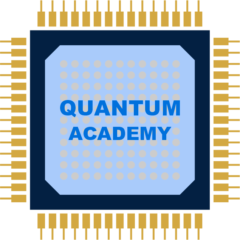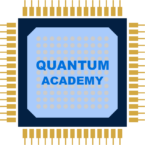M.Tech Electronics and Communication Engineering (VLSI and Embedded Systems)
April 8, 2025 2025-04-17 11:06M.Tech Electronics and Communication Engineering (VLSI and Embedded Systems)

UG Degree
M.Tech Electronics and Communication Engineering (VLSI & Embedded Systems)

Programme Overview
The M.Tech in Electronics and Communication Engineering with a specialisation in VLSI and Embedded Systems at Quantum Academy is crafted for engineers eager to lead innovation in high-performance electronics and intelligent systems. This two-year postgraduate programme bridges foundational theories with practical implementation, offering a deep dive into advanced topics such as digital system architecture, microcontroller-based design, and modern communication protocols.
Students gain real-world experience through immersive labs, capstone projects, and industry-aligned internships that sharpen their technical skills and problem-solving acumen. The curriculum is designed to nurture analytical thinking, collaborative teamwork, and research-oriented learning—skills that are crucial for the fast-evolving tech landscape.
Graduates of this programme are equipped to take on dynamic roles across industries like telecommunications, automotive systems, industrial automation, and consumer electronics. At Quantum Academy, the emphasis is not just on learning existing technologies but also on shaping the future of VLSI and embedded systems through innovation and research excellence.

Learning experince
M.Tech in Electronics and Communication Engineering (VLSI & Embedded Systems)
Duration
2 Years (Full-Time)
Highest CTC
INR 24 LPA
Fee Per Year
₹ 3,05,000

Eligibility
Candidates must have completed a 4-year Bachelor’s degree in a relevant Engineering discipline from a UGC-recognised university or its equivalent, with a minimum aggregate of 50% marks.
(A minimum of 45% marks is required for candidates from the Reserved Category domiciled in Maharashtra.)
AND
Must have a valid score in any of the following entrance examinations:
- GATE (2025 / 2024 / 2023)
- Quantum Academy CET 2025
- PERA CET 2025
OR
Sponsored candidates with at least 2 years of relevant work experience after graduation in the corresponding engineering field.
Programme Highlights
Industry-Aligned Curriculum
Gain in-depth knowledge through a specialised curriculum covering key areas like VLSI design, embedded systems, digital signal processing, and advanced communication systems—blending theoretical foundations with practical relevance.
Hands-On Learning
Apply classroom concepts to real-world scenarios through extensive lab work, live projects, and system-level simulations, ensuring you graduate with job-ready skills.
Cutting-Edge Tools & Technologies
Build proficiency in the latest design tools and development environments used in the VLSI and embedded systems industry, preparing you for high-demand technical roles.
Research-Driven Approach
Participate in research initiatives that encourage innovation, critical thinking, and exploration of emerging technologies in electronics and communication engineering.
Expert Faculty Mentorship
Learn from a distinguished faculty team with rich academic credentials and real-world industry experience, offering personalised guidance throughout your academic journey.
Career Support & Placement Assistance
Benefit from Quantum Academy’s dedicated career services team, connecting you with top recruiters for internships and full-time placements in the electronics and communication sector.
Programme Outcomes
In-Depth Technical Expertise
Graduates develop a strong command over VLSI design principles, embedded system architecture, and advanced communication technologies.Proficiency with Modern Tools
Students become skilled in using industry-standard tools and methodologies for designing, simulating, and testing VLSI circuits and embedded systems.Research and Innovation Readiness
The programme nurtures the ability to conduct independent research, enabling students to contribute to cutting-edge advancements in electronics and communication engineering.Analytical and Problem-Solving Skills
Learners build the critical thinking and analytical abilities required to identify, analyse, and solve complex challenges in electronic systems.Collaborative & Communication Skills
Graduates are equipped to work effectively in multidisciplinary teams, demonstrating clear communication and collaborative project execution.Ethical and Professional Responsibility
Students are trained to uphold the highest standards of professional integrity, applying responsible engineering practices to create meaningful and sustainable impact.



